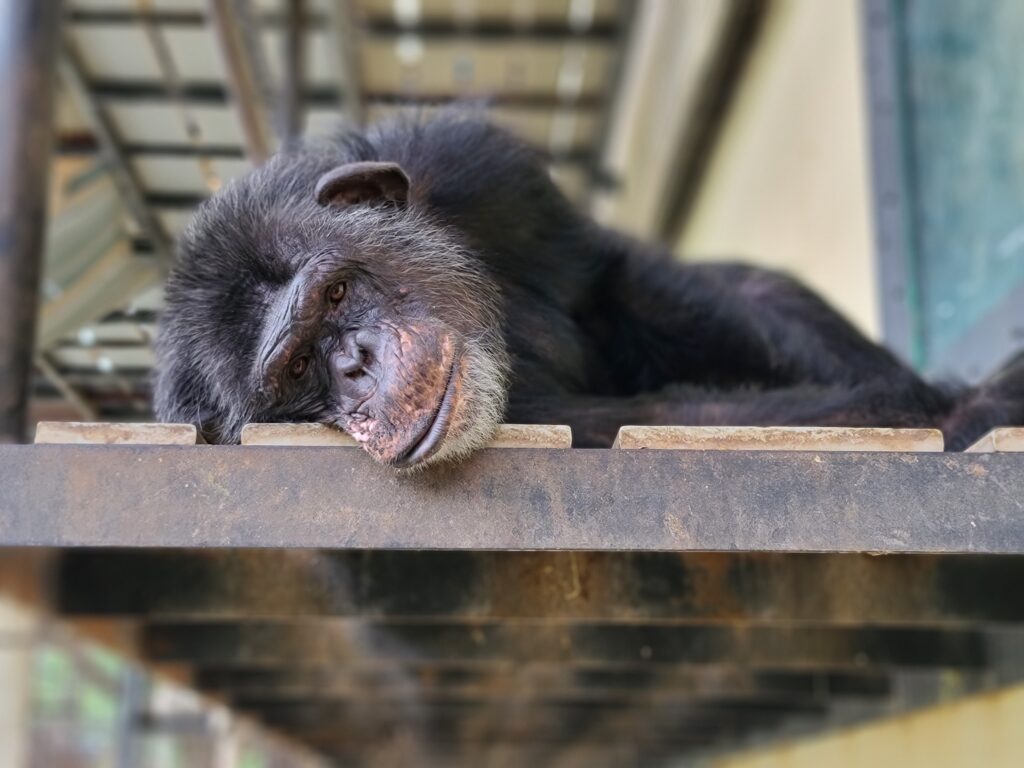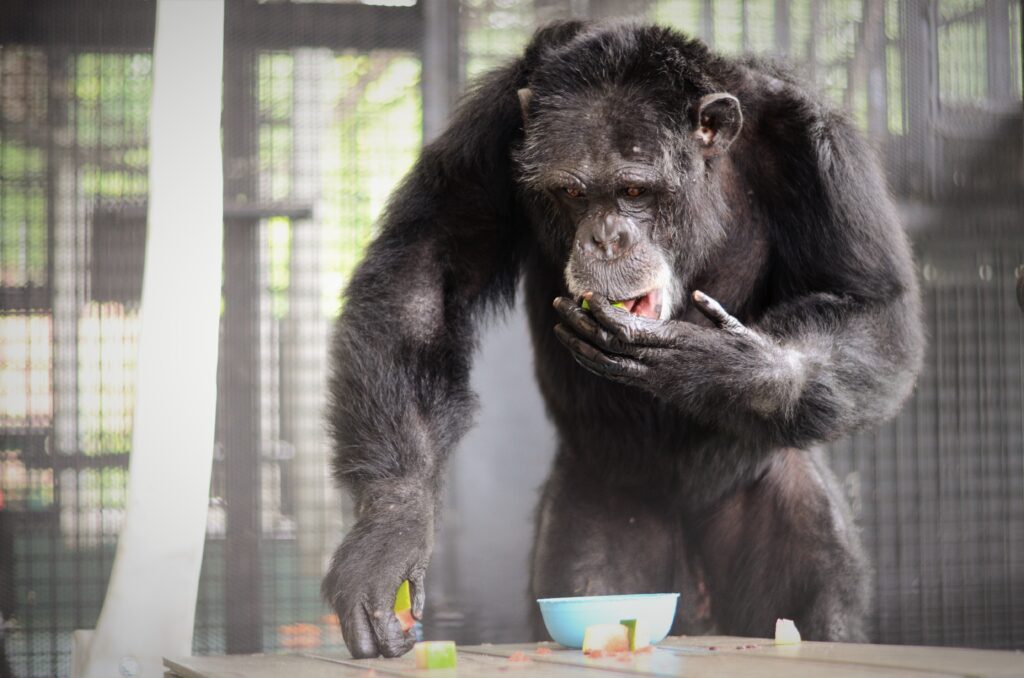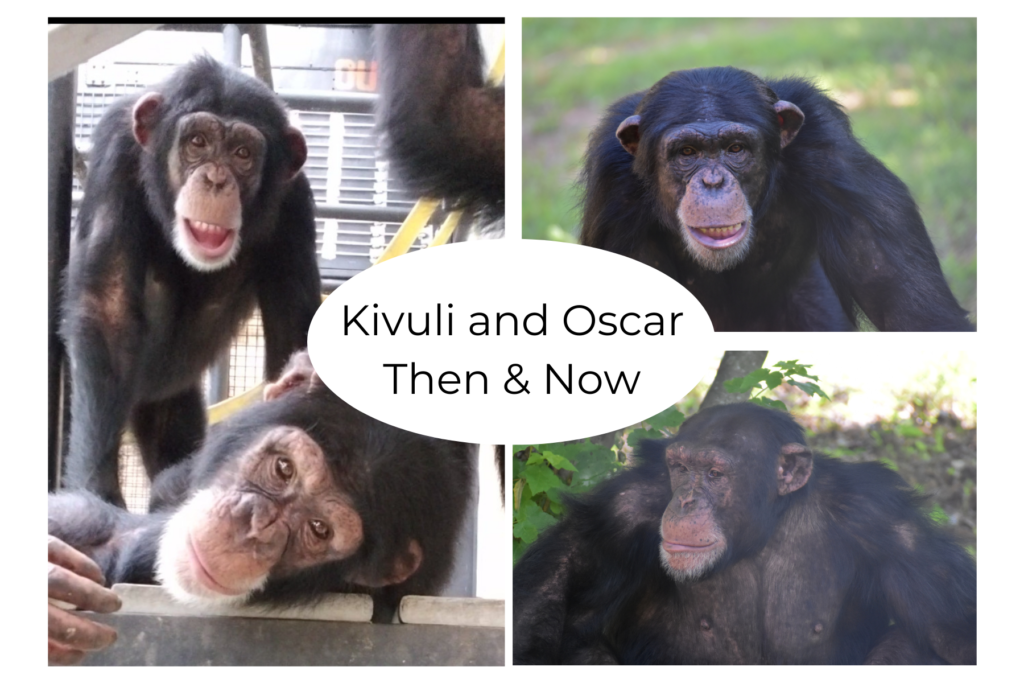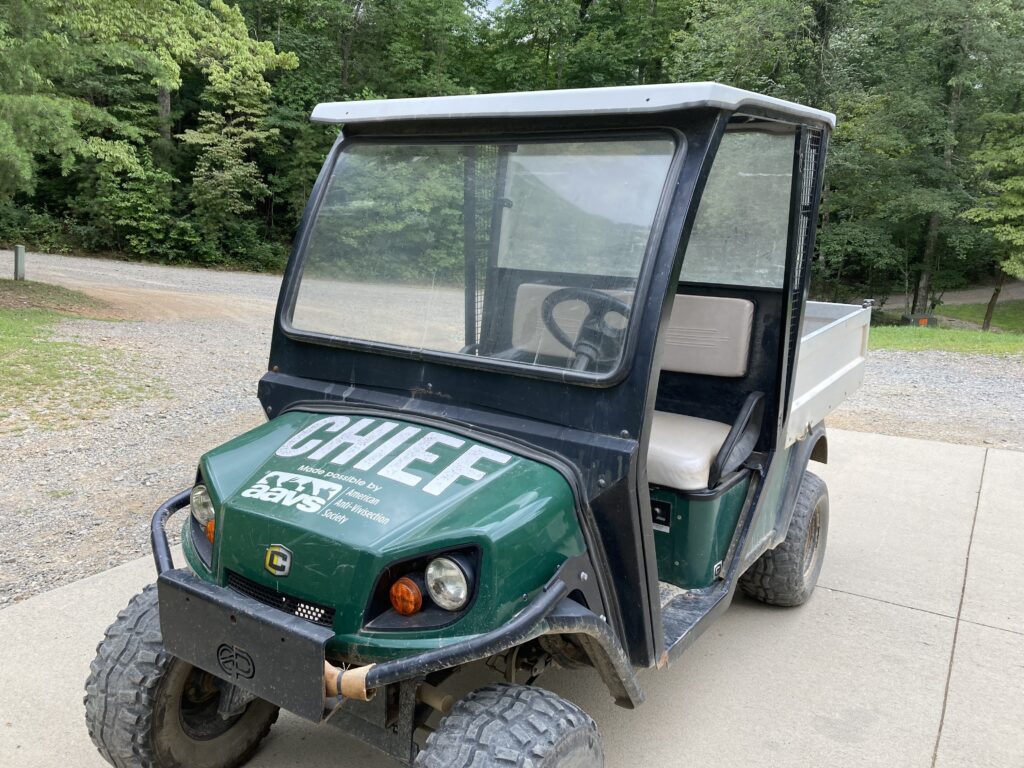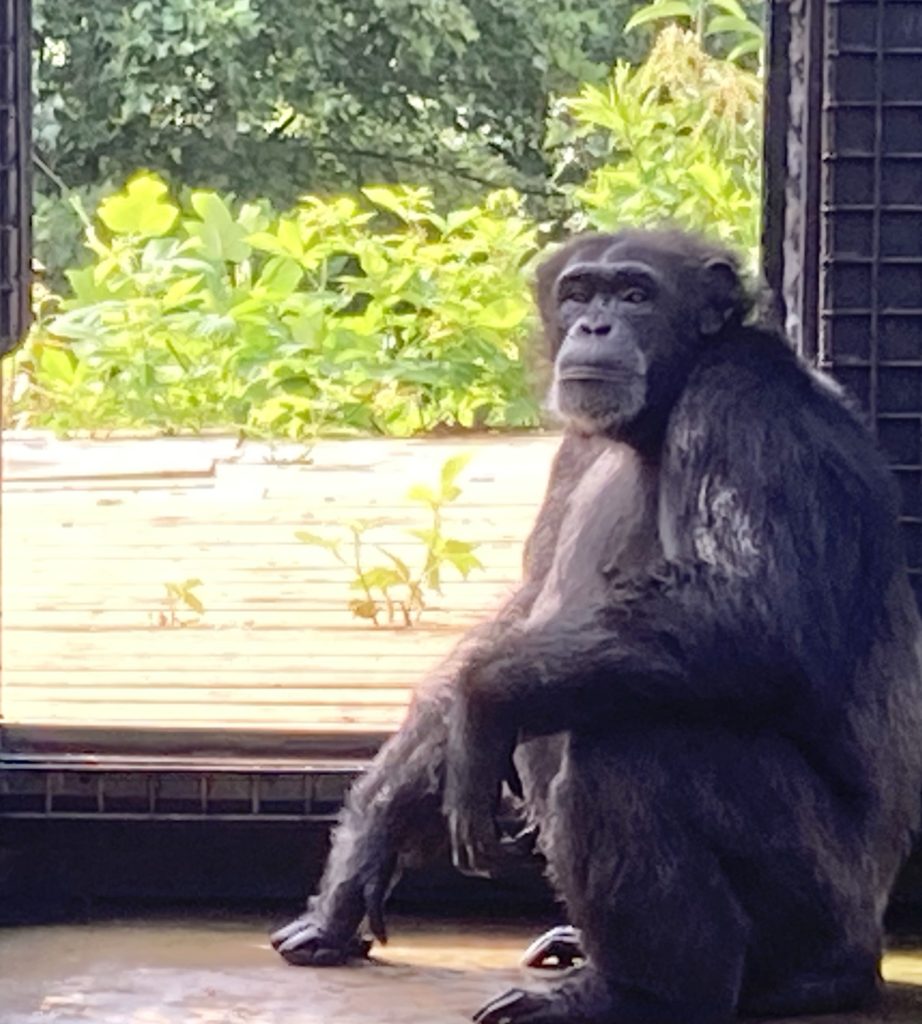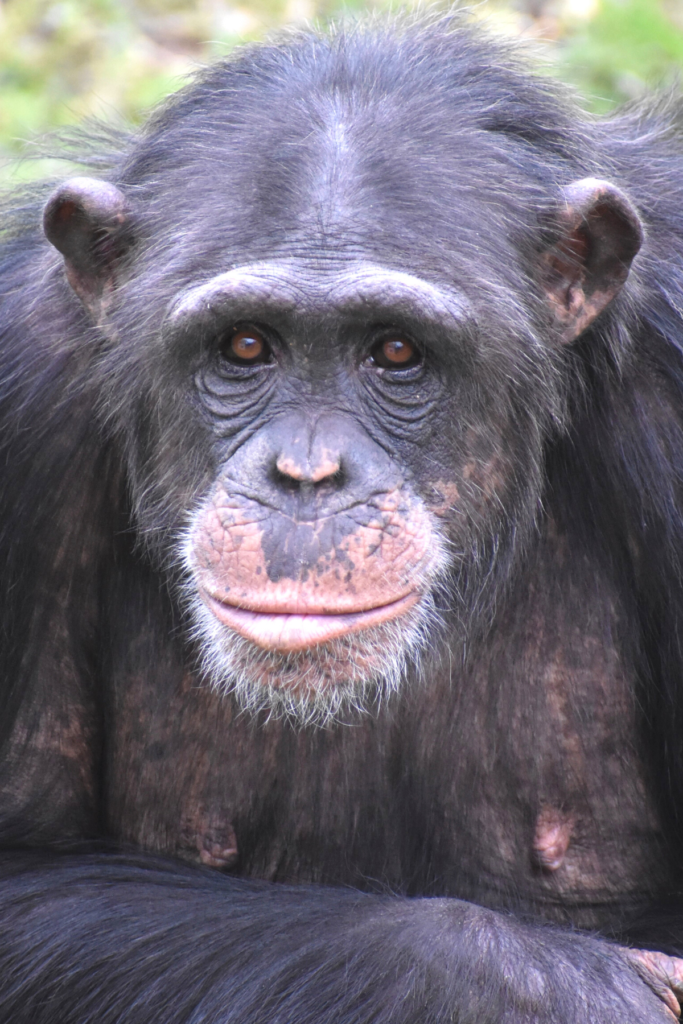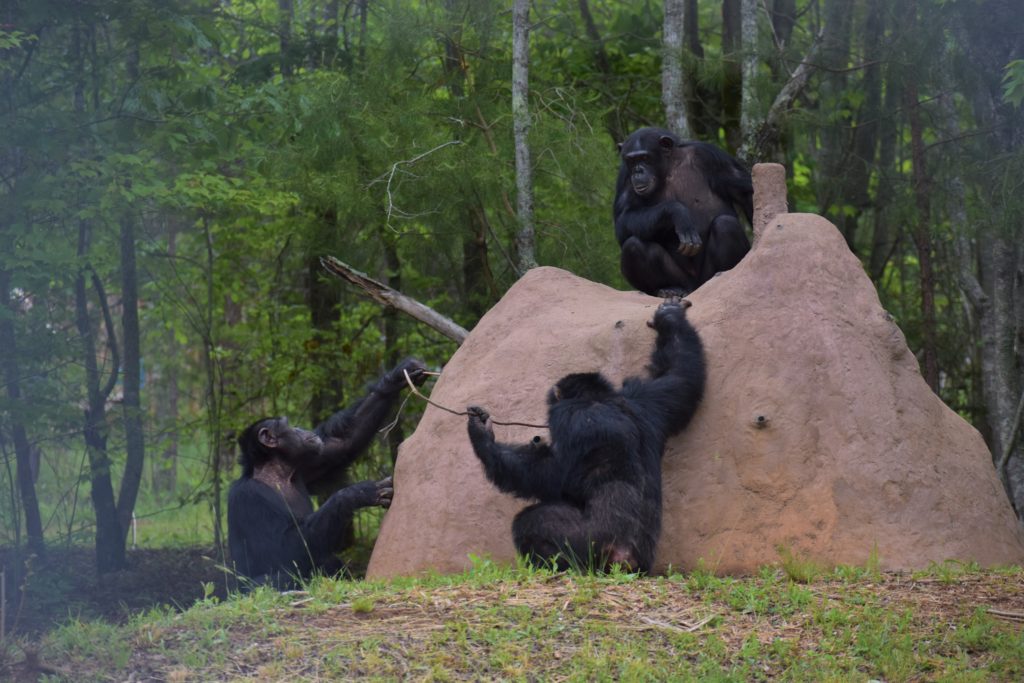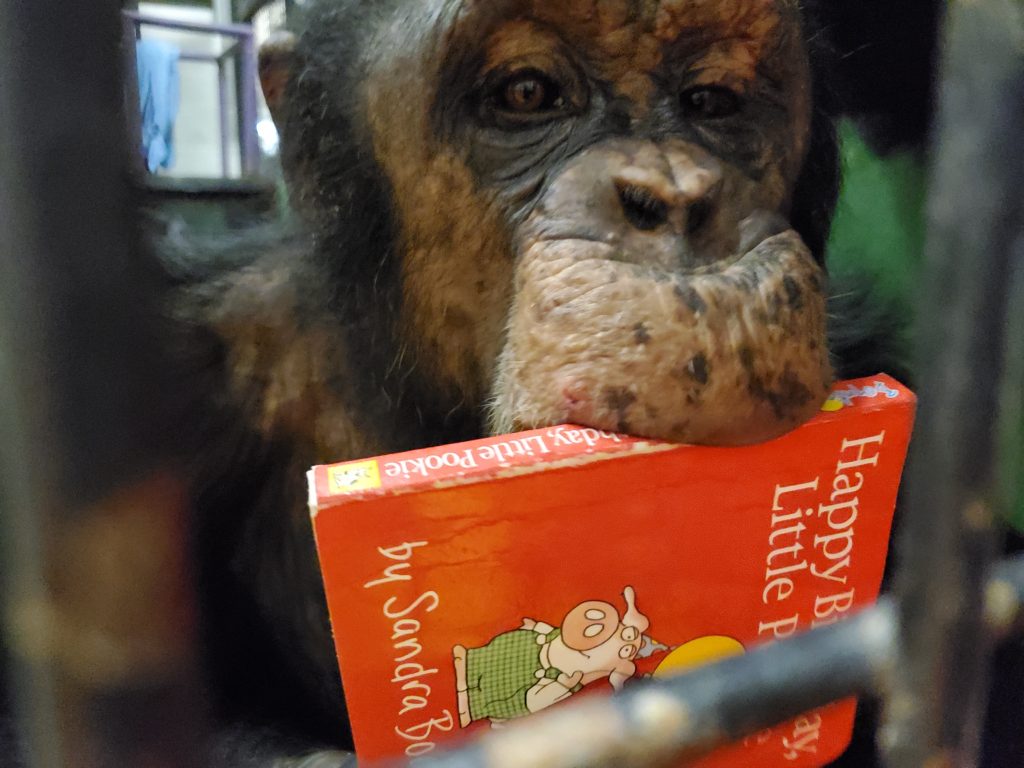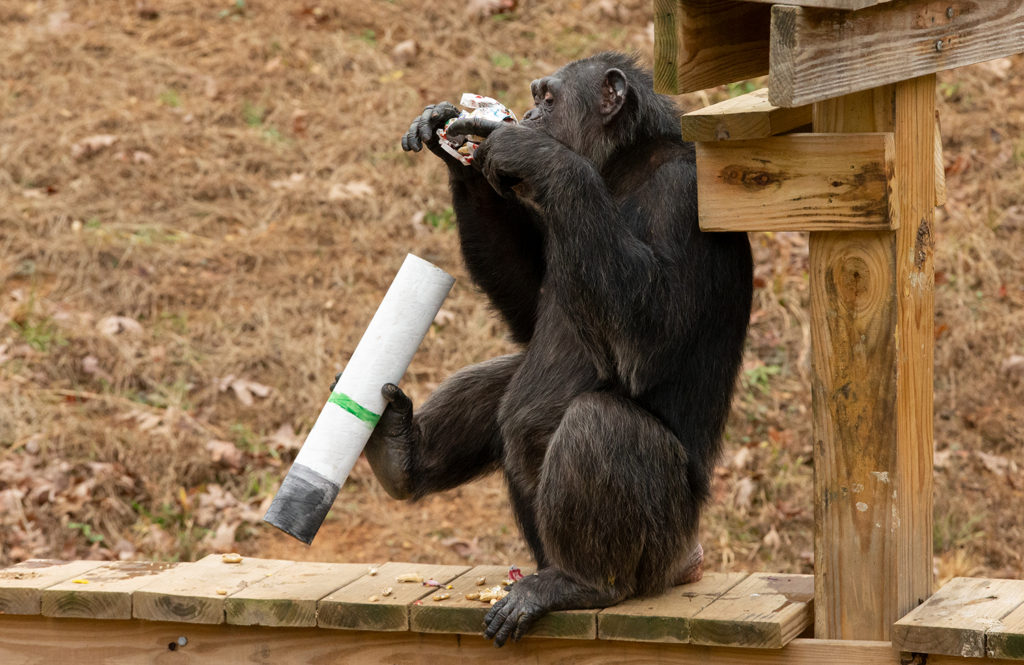Posts by Project Chimps
Aging Gracefully…Or Not
Greg and Armond are two of the oldest chimps here at the sanctuary. They have taken two stances on getting older; one is more accepting and the other is not. Learn more about how Greg and Armond are getting used to the aging process.
Read MoreThe Perfected Hand Eating Techniques
No utensils? No problem. Chimpanzees use their hands for basically everything – including eating. They rely on their hands in the same way humans do, if not more! When it comes to eating, the chimps are always showing off their hand eating skills.
Read MoreAwkward Adolescence
Kivuli and Oscar are the two youngest chimps we have at the sanctuary. Throughout their awkward adolescence, they are learning and adapting to their adult lives. Learn more about the physical and mental changes the young chimps have gone through.
Read MoreWhat is in a name? Our ATVs have their own!
Some of our most integral members to the Project Chimps team aren’t the staff, volunteers, or even the chimps – they’re our golf carts and all-terrain vehicles (ATVs) that make up our fleet.
Read MoreThe BCS – Weight Management for Captive Chimpanzee Populations
How would you know if a chimp is obese? Or too skinny? A chimpanzee’s body condition is an important indicator of overall physical health. One non-invasive, visual way to help gauge body condition is by using the Body Condition Scoring System, or the BCS.
Read MoreChapped Lips: Chimps Get Them Too!
Just like humans, chimpanzees can develop chapped lips! Samira came to Project Chimps in 2016, and she brought with her chronic dry skin. The caregivers at Project Chimps used medications to soothe her dry skin. However, they wanted to provide Samira with the least invasive form of treatment.
Read MoreMarlon’s Finger Injury
When there was a scuffle in the yard, Marlon appeared to have an injury to his finger. It eventually required surgery. However, he has made a fantastic recovery! Learn more about how Marlon has handled his injury. Warning *graphic images*
Read MoreDo chimps eat insects?
In the wild 2% of a chimp’s diet is made up of animal protein, and the majority of that is bugs! These chimps seem a lot less inclined to eat insects the way their wild cousins do. At least for now.
Read MoreLeo-land
Leo has been a special chimp from the beginning, and we have been helping him cope with mental episodes. Leo has made significant improvements since he has arrived at the sanctuary and continues to thrive.
Read MoreCreator of the BOT (Behavior Observational Tool) – Eric Simonton
Eric Simonton developed the BOT several years ago. It’s actually an incredibly humorous and somewhat cosmic story.
Read More
